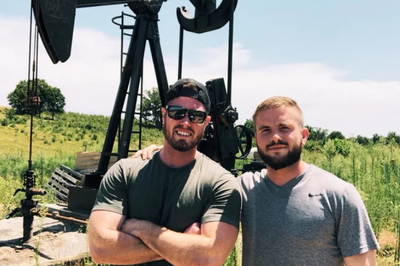cha-ching
Houston energy workforce-focused startup raises $2.5M seed funding

Digital Wildcatters, founded by Collin McLelland (right) and Jacob Corley, just raised $2.5 million in funding. Photo courtesy
With $2.5 million in fresh funding, Digital Wildcatters is on its way to keep empowering the evolving energy workforce.
Digital Wildcatters, a Houston company that's providing a community for the next generation of energy professionals, has closed its seed plus funding round at $2.5 million. The round by energy industry veteran Chuck Yates, who also hosts his podcast "Chuck Yates Needs a Job" on the Digital Wildcatters' podcast network.
"Our industry's survival depends on recruiting the next generation of energy workers. We must adapt to their digital, content-rich world, as we currently lag behind, like a VHS tape in a Netflix world. Digital Wildcatters is our path to modernization," Yates, based in Richmond, Texas, says in the news release.
Diamondback Energy and ProFrac also contributed to the round, which closed on December 1 and follows up on the company's $2 million seed round raised from angel investors in 2021.
The fresh funding will go toward further development and commercialization of Collide, an energy industry professional networking app, which launched this fall. The app aims to help advance and support the industry through professional development connection, job portal, and an AI-backed content search engine for industry information.
"Our mission is to empower the next generation of energy professionals to advance their careers and collaboratively address the global energy crisis," Collin McLelland, co-founder and CEO of Digital Wildcatters, says in the release. "We are incredibly grateful to have an investor base that not only believes in our vision but also supports our endeavor to craft innovative products that will redefine the future of the energy industry."
McLelland co-founded Digital Wildcatters with Jake Corley. The two started the Oil and Gas Startups podcast in 2019.
———
This article originally ran on InnovationMap.